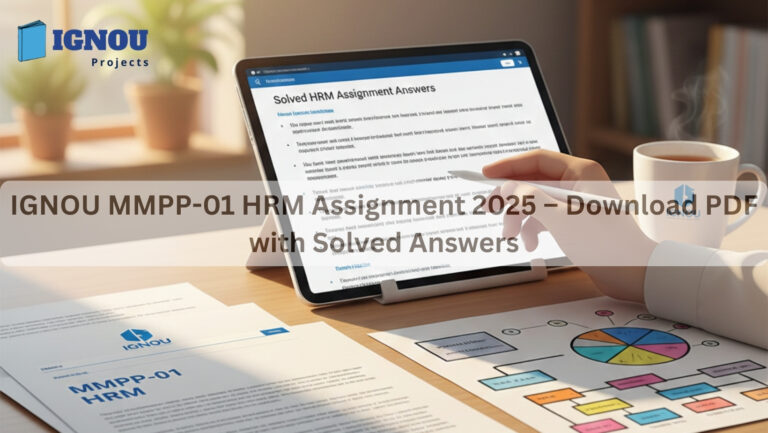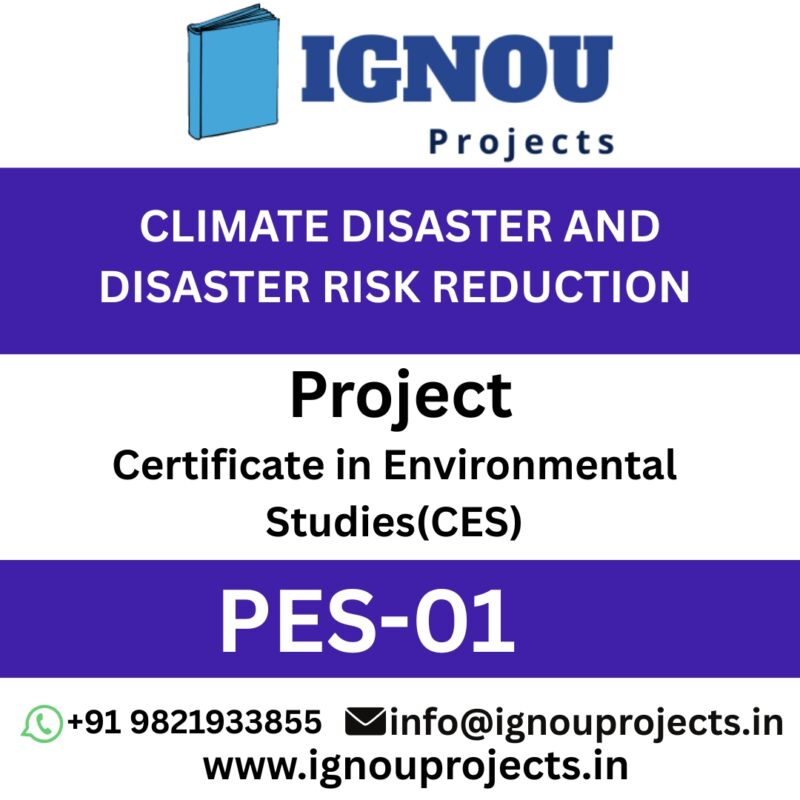Top Project Topics on DCE-06
Top Project Topics on DCE-06: Writing for the Media

Table of Contents
Introduction
IGNOU’s Diploma in Creative Writing in English (DCE) aims to equip students with advanced creative writing skills. Perhaps the most significant component of this program is DCE-06: Writing for the Media, where students are asked to undertake a practical project based on their learning in actual media situations.
Most students are faced with difficulties in selecting a project topic, knowing the correct format, and submitting the report. This manual offers the best project topics for DCE-06, as well as step-by-step procedures, so students can accomplish their project and earn high marks.
Through following this manual, you will know how to choose a topic, organize your project, write creatively for various media, and submit it as per IGNOU guidelines.
What is DCE-06?
Course Code: DCE-06
Course Title: Writing for the Media
Programme: Diploma in Creative Writing in English (DCE)
University: Indira Gandhi National Open University (IGNOU)
DCE-06 is a 4-credit project course. It is practical in nature and assesses students on their skill to produce media content for newspapers, magazines, radio, television, and web platforms.
The course focuses on:
- Writing effectively and creatively for various media
- Understanding audience engagement
- Presenting projects in a professional and academic manner
- Implementing theoretical concepts acquired in other DCE courses
Why is the DCE-06 Project Important?
The DCE-06 project is important because it:
- Shows your creative writing ability.
- Offers practical experience in media writing.
- Produces a portfolio piece usable professionally.
- Develops skills in editing, organizing, and presenting content.
- Makes a large contribution to your final grade in the DCE program.
An appropriate project topic will make you stand out, reflect your creativity, and render your project interesting for assessors.
Step 1: How to Select an Appropriate Project Topic
Your selection of a project topic is the initial and most important step. Keep the following points in mind:
1. Personal Interest:
Pick a topic that interests you. If you like feature writing, your project can be on newspaper or magazine articles.
2. Originality:
Choose an original viewpoint on a trendy issue instead of replicating trending subjects.
3. Feasibility:
Make sure the subject is feasible to be finished within the allocated word count and deadline.
4. Availability of Resources:
Choose a subject through which you can readily obtain data, interview people, or investigate well.
5. Guide Approval:
Get your topic approved by your guide for the project prior to its commencement to avoid rejection.
Step 2: Best Project Ideas for DCE-06
Here’s an extensive list of project topics grouped according to media format:
Print Media
- Women Empowerment Feature Article
- Emphasize stories of local women achievers.
- Comprise interviews, facts, and real-life illustrations.
- Local Environmental Problem Report
- Address topics such as plastic pollution, water conservation, or urban gardening.
- Incorporate photographs or diagrams if applicable.
- Editorial on Digital Literacy
- Emphasize online learning content, digital technology, and internet literacy.
- Campus Newsletter
- Publish news, events, and feature articles from your study center.
- Human-Interest Story
- Share motivating personal experiences from your community.
Radio Projects
- Radio Talk on Health Awareness
- Write a 5–10 minute discourse on nutrition, mental health, or vaccination.
- Radio Drama on Education
- Develop a short drama encouraging literacy or social awareness.
- Community Radio Interview
- Conduct a mock interview with a local celebrity or specialist.
- Radio Jingle Script
- Develop an appealing jingle for a social cause or product.
- Radio Bulletin
- Develop a brief news bulletin with breaking news.
Television Projects
- TV Documentary Script on Climate Change
- Contain narration, visuals, and interview scripts.
- Anchoring Script for Cultural Event
- Have a vibrant script for a cultural or educational show.
- TV Talk Show Script
- Contain questions, answers, and transitions for a panel discussion.
- News Bulletin Script
- Embrace headlines, in-depth stories, and live reporting cues.
- Educational Program Script
- Design a script for short science, history, or social studies educational segments.
Online Media Projects
- Blog Series on Mental Health Awareness
- Develop 3–5 blog articles with tips, expert advice, and resources.
- SEO-Friendly Articles on Social Issues
- Produce search engine-optimized articles with headings and keywords.
- Social Media Awareness Campaign
- Create Facebook, Instagram, or Twitter posts supporting a cause.
- NGO or College Portal Website Content
- Create informative and interesting website content.
- Digital Storytelling Project
- Develop stories for the web with text, pictures, and interactive features.
Step 3: Project Structure and Format
The IGNOU DCE-06 project must adhere to this standard structure:
- Title Page
- Title of project, name of student, enrolment number, programme, session, study centre code.
- Certificate of Authenticity
- Signed by your guide to confirm the project is your own work.
- Acknowledgments
- Optional, but may acknowledge your guide, mentors, and peers.
- Table of Contents
- List chapters, headings, and page numbers.
- Introduction
- Describe the purpose and relevance of the project.
- **Objectives
- Clearly state project objectives.
- Methodology
- Explain your creative process, research approach, or interviews.
- Main Content
- Add your articles, scripts, or creative writing pieces.
- Findings / Observations
- Emphasize findings from your work.
- Conclusion
- Summarize results and learning.
- References / Bibliography
- List all sources and inspiration.
- Annexures / Appendices
- Add supporting material such as drafts, photographs, or transcripts of interviews.
Step 4: Sample Project Outline
Example: Blog Series on Mental Health Awareness
- Title Page: Blog Series on “Youth and Mental Health”
- Certificate: Guide’s signature
- Acknowledgment: Peers and mentors
- Introduction: Significance of mental health awareness
- Objectives: Educate the youth, eliminate stigma, offer resources
- Methodology: Online research and interviews
- Content: 5 blog posts, 600–800 words each
- Findings: Determined knowledge gaps among young people
- Conclusion: Project enhanced writing skills and awareness
- References: WHO guidelines, scholarly articles
- Annexures: Screenshots of blogs, interview transcripts
Step 5: Tips to Score High in IGNOU DCE-06
- Originality: Do not copy content.
- Structure: Be strict in the IGNOU project format.
- Clarity: Be concise and clear.
- Proofreading: Check grammar and spellings.
- Creativity: Incorporate headings, bullet points, and visuals wherever appropriate.
- Relevance: Keep focused on your selected media type.
Step 6: Common Mistakes to Avoid
- Submitting synopsis without approval.
- Disregarding formatting guidelines.
- Composing too long or too short reports.
- Missing deadlines.
- Copying online content or plagiarism.
- Omitting Guide’s certificate.
- Failing to include annexures or references.
Step 7: Submission Process
- Prepare PDF or printed copy as per IGNOU guidelines.
- Submit to your Regional Centre or through the online portal if applicable.
- Make sure guide approval is obtained.
- Maintain a copy for your records.
- Double-check deadlines carefully — June and December deadlines are typical.
Step 8: FAQs
Q1: Can I submit my project online?
A1: Yes, IGNOU offers an online submission system for DCE-06.
Q2: What is the word limit?
A2: Varies based on your media type; e.g., blog series (3–5 posts
, 600–800 words per post), radio script (5–10 minutes).
Q3: Can I take assistance from others?
A3: Guidance is permitted, but the content should be your own original work.
Q4: How is the project assessed?
A4: Creativity, clarity, structure, media relevance, and formatting are most important.
Step 9: Using Tools to Enhance Your Project
- Grammarly: Clarity and grammar.
- Hemingway Editor: Readability and conciseness.
- Canva: Visuals and cover page design.
- Google Docs: Formatting and drafting.
- ChatGPT / QuillBot: Editing and idea generation.
Conclusion
The DCE-06 project is the best method to practically exhibit your writing skills for Print, Radio, TV, and Online Media. With this guide, you can select a correct topic, organize your project correctly, and submit your project within time.
Keep in mind: originality, creativity, and accurate formatting are the secrets of getting high marks in your IGNOU DCE-06 project. Prepare beforehand, remain systematic, and let your writing reflect the best of you.


 CES-PES-01 CLIMATE DISASTER AND DISASTER RISK REDUCTION
CES-PES-01 CLIMATE DISASTER AND DISASTER RISK REDUCTION